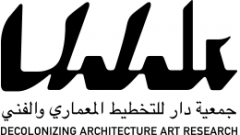With: Isshaq Al-Barbary, Niklas Goldbach, Sandi Hilal, Elias Khoury, Khalil Abu Laham, Alessandro Petti, Lorenzo Pezzani, Rasha Salti, Jad Tabet, Eyal Weizman
Curated by Rasha Salti and Paul B. Preciado
This gathering of the Parliament of Bodies will explore the genealogies, epistemologies, heritage, and knowledge produced within one of the most poignant and morbid legacies of the twentieth century, namely “refugee camps.” The century’s first refugees were survivors of the genocide of the Armenian populations living in the territory that would soon become the Republic of Turkey between 1915 and 1923. The Armenian genocide marked the emergence of international humanitarian relief to survivors, the establishment of camps, triage stations in neighboring countries, and the international media documenting the horrors of their experience in reports and photographs. The refugee camp invented a political regime without political rights and a visual regime of total exposure and dispossession.
Throughout the past century, scholarship, theory, and policy have focused on citizenship and the nation state, while all other forms of community formation, economic and urban organization, as well as the fabric of social relations outside the paradigms of the state and citizenship are perceived as theoretically exceptional, pertaining to anthropology, ethnography, and humanitarian contingency. Established based on the principles of temporariness and impermanence, camps have prevailed for longer than half a century, and generations of their dwellers were born into the world carrying their identity as refugees, even if they had not themselves experienced the forced displacement that their parents or grandparents experienced. Over time, refugee camps become districts in cities, and refugees the denizens, indentured laborers, the “guest others” of a national economy. A hundred years after the Armenian genocide, the number of people who are identified as refugees has increased exponentially. Humanitarian organizations entrusted with their survival and destiny are so profoundly institutionalized that they have become normalized and commonplace, yet the perception of what camps represent remains “outside” the realms of useful knowledge, of ways of acting and being in the world.
This forum, within the Parliament of Bodies, proposes to reverse the paradigms and explore refugee camps and being a refugee in the world as central, rather than epiphenomenal, exceptional, or temporary notions. From Beirut to Calais, from Lesbos to Zaatari, we invite architects, urban planners, theorists, filmmakers, artists, writers, and activists to reflect on the knowledge accumulated and transmitted from life in the camps, the myriad histories of acting, building, resisting, and negotiating power and authority; producing community, space, and temporality. The legacy of a century of refugee camps constitutes fertile terrain to interrogate the normative paradigms of nation state and citizenship and reevaluate different cosmogonies for the organization of society, relations of authority and power, as well as production of economy, space and time.
